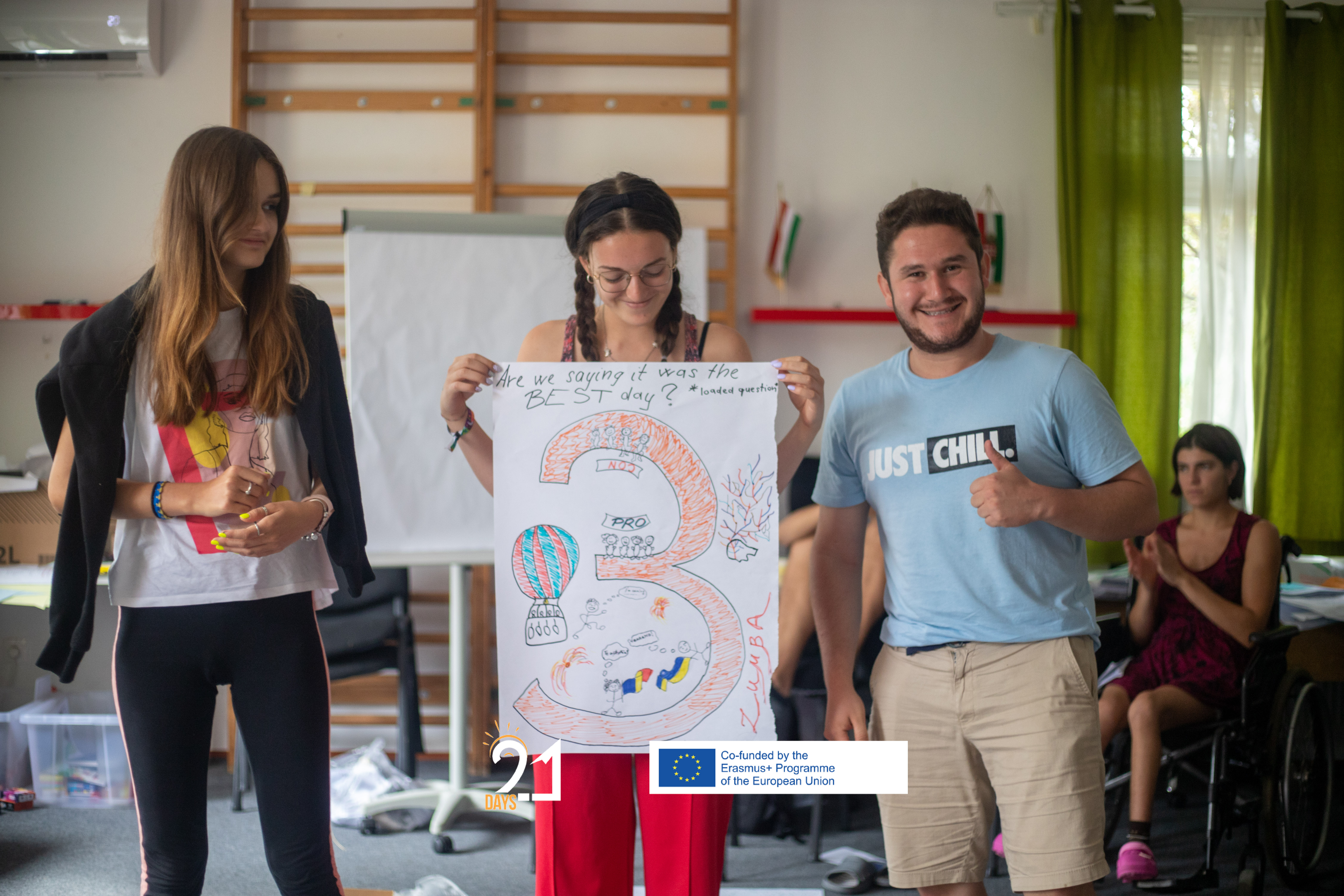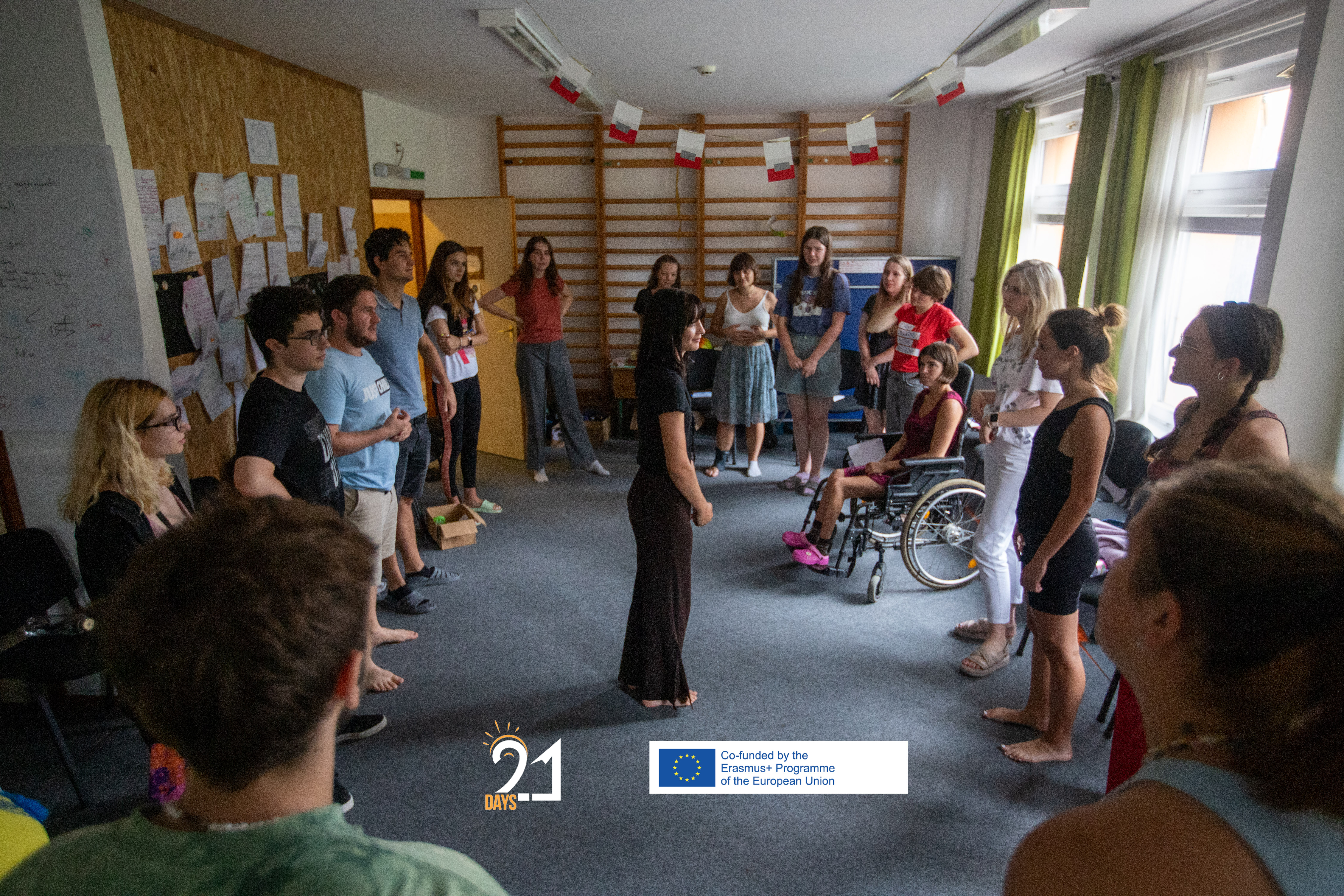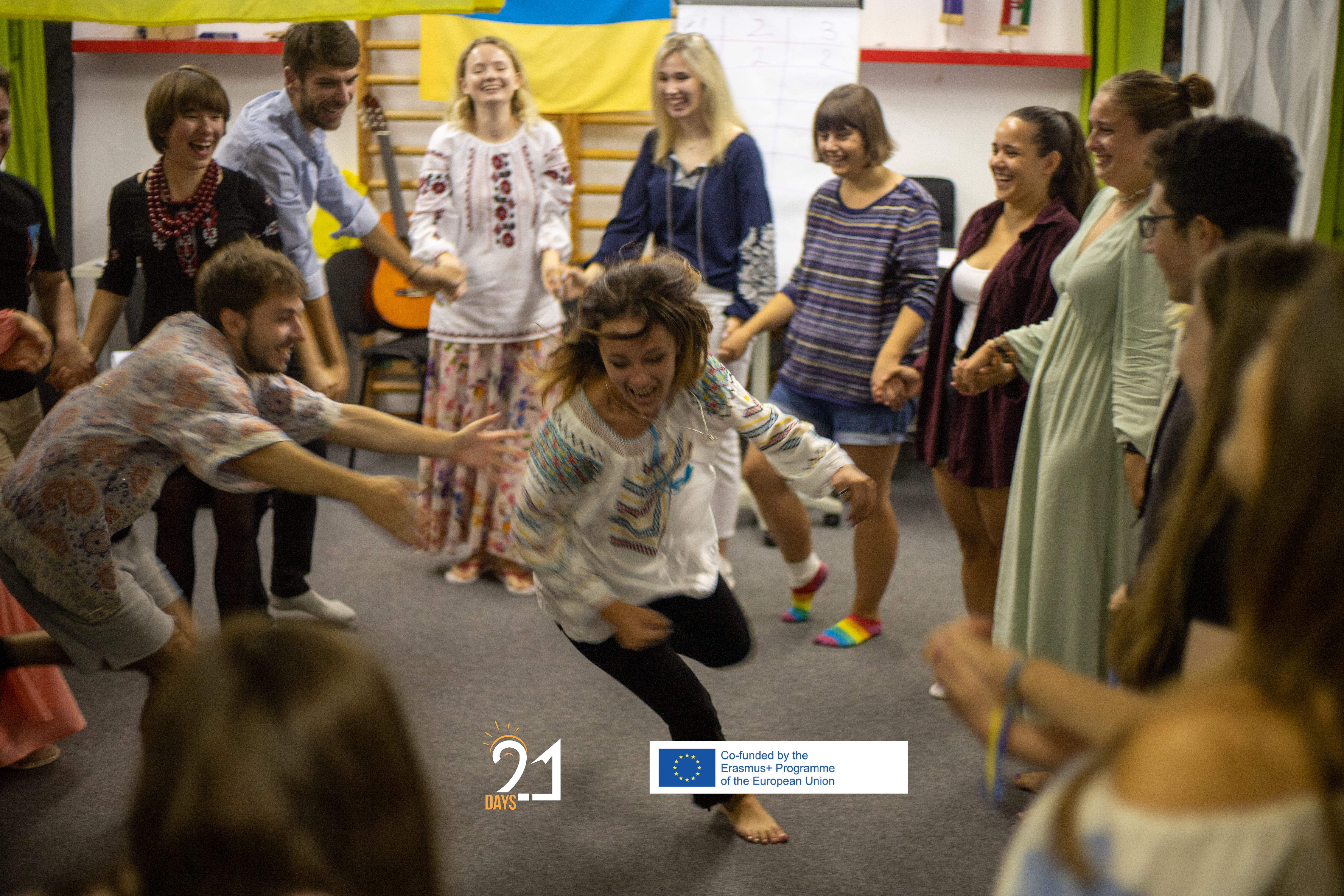
How can an Erasmus+ youth exchange impact young people's social media awareness? What challenges can an international project face today? What motivates a 24-year-old young person to implement an Erasmus+ project? These are the questions we explored with Abris Szép, President of 21 Days - Youth for a More Conscious Life.
From young people to young people - youth exchanges through the eyes of a young project implementer
The name of the 21 Days Association refers to the fact that we allegedly need 21 days to change our habits. Your association aims to help young people in this process. What was the purpose of the Who Do You Follow youth exchange itself?
To enable young people to navigate in the world of social media in a more prepared and conscious way. We considered, for example, how we could cut back on social media usage and instead, build useful habits. Many people indicated that they wanted to do more sport, so we tried different sport activities during the youth exchange. Some people said they wanted to produce content, but through a creative, responsible process, so we created opportunities for that too. We also looked at the sites we follow, which ones we would like to see more of in the future, and which ones we follow. To make sure we had the subject knowledge, we worked with research on different topics. Participants said that they had learned a lot of new information and questioned their previous assumptions about certain topics.
| The 21 Days Association’s Who Do You Follow? Erasmus+ youth exchange won the Erasmus+ Award of Excellence for outstanding projects in 2024. Twenty-six young people participated from Ukraine, Romania, Poland and Hungary. What made the project outstanding was its focus on a priority theme, media literacy, and how it addressed social challenges such as the deliberate and susceptible involvement of young Ukrainians from war-torn Ukraine and the accessibility of the project as well. |
What has had the biggest impact on young people?
One of the most exciting programmes was when we did a digital detox and locked up our smart devices for 24 hours. We collected all the phones, put them in a box and only opened it the next day. Then we reflected on the experience. Everyone had a bit different experience. Some felt a constant phantom vibration in their pockets, others found it strange to have nothing to do when they were alone. Just after 24 hours, many people concluded that they wanted to change their relationship with technology.

Did the youth exchange have an impact on the organisers' social media usage?
Yes, not only the participants’ but also our social media usage changed after the project. When we design and post content, we think about whether it is useful for young people and whether it is responsible. The goal is that when someone scrolls through Instagram and sees our posts, they remember what they saw there at the end of the day.
This was not the first youth exchange. Did anything arise during the organisation that you experienced as a challenge or did it all happen out of routine?
There were two big challenges. It didn't come up during the planning, but a girl with a disability applied for the youth exchange. At first, we were worried because we had no experience in this field. We didn't know if the accommodation would be good, if the tasks would be appropriate. Finally, we asked her what exactly she would need for the project. We made arrangements for accommodation, the participant found a chaperone, and we, the organisers, met to discuss what elements of the programme we could change to suit the needs of the participant. So, she was able to participate fully in the project and we considered it a great success.

Furthermore, the exchange also involved young people from Ukraine... the question of whether the trip was worth the risk was raised, and the decision was ultimately left to the partner. They came anyway, and fortunately there were no problems. The fact that they were able to take part in an international programme for young people, despite the war in their country, was a significant experience for them.
Emotionally, it must have been quite a tense situation. How did you manage that?
There were some difficulties, for example, they were worried about the 24-hour digital detox, because what if news, affecting their families, came out at the same time. We talked a lot about that too, they shared their experiences with us. There were some traumatic parts. The group and I tried to work through it so that everyone would hear only as much as they were mentally prepared to hear.

What has been the long-term impact of the project?
Several new project ideas were born during Who Do You Follow? One of these was Mind and Motion, where we focused on how to make sport an integral part of the participants' lives - as many would trade social media use for this - and how we can take care of our mental health. It was also an opportunity to build capacity: some of the participants are now project organisers in our association.
You got into the youth sector quite young - you are only 24. What motivates you to carry out Erasmus+ youth exchanges?
I started working as a youth exchange organiser when I was nineteen. Before that, I had been involved in several projects and found it a magical experience. I thought how nice it would be to give this to others by organising it myself. I would recommend Erasmus+ Youth Exchanges to all young people, really to everyone! It doesn't matter if you consider yourself an introvert or an extrovert, how confident you are in your English. Go, give it a try and experience it, it will be one of the defining experiences of your life! And if you've already taken part in a few projects and you feel like doing it yourself, do it. Join an association, or even contact us and try it out for yourself! Because youth exchanges are projects by young people to young people. We do them for each other.
Last modified: 26-08-2024















